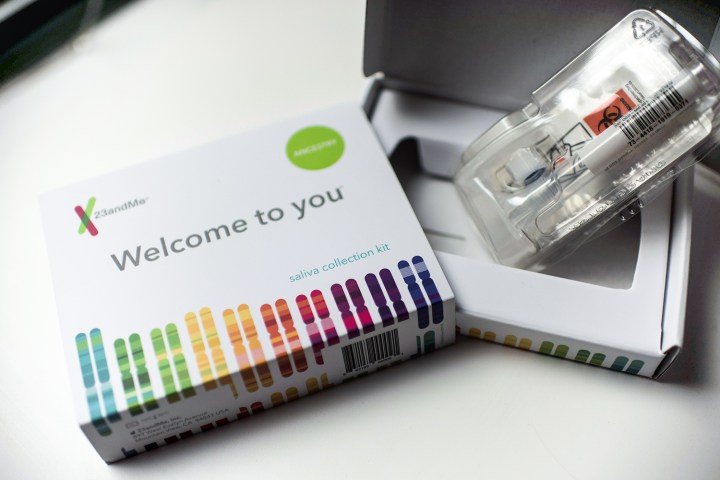

In the postindustrial world, human populations are more dispersed than ever, but one of the effects of migration is that the great rifts of time and geography can leave people feeling disconnected from their ancestors. It’s no surprise then that so many people have submitted samples of their genetics to services like 23andMe, which collect these samples and evaluate them, offering insights into health and even the geographic regions their ancestors came from. Tens of millions have people have used these services, but the market for them seems to have cooled off.
If the demand for home genetic tests doesn’t bounce back, 23andMe may have a different path forward. The company has built a Therapeutics team, and since 2015 this team has used the genetic data provided by consenting customers — the company claims 80 percent of consent to the research — to develop drugs for treating specific health issues. The company has partnered with Spanish pharmaceutical company Almirall to develop an antibody that could help deal with some particularly nasty diseases.

What is IL-36? What health problems can it cause
The antibody in question is designed “to block all three members of the IL-36 cytokine subfamily … a part of the IL-1 cytokine family, which is associated with multiple inflammatory diseases.” If that sounds overly science-y and ominous, here’s a breakdown what exactly those terms mean.
Cytokines are proteins that cells secrete, and they affect communication between cells, for a variety of purposes. Interleukin-36 (IL-36) is a particular group of cytokines, but what exactly do they do?
23andMe has engineered an antibody that it says can block IL-36 cytokines.
“The highest IL-36 activities probably are found at barrier sites of an organism (skin, lungs, and intestines),” according to a review published in Frontiers in Immunology. “This indicates the importance of IL-36 cytokines in terms of protecting the body from the environment at its interfaces … The recognition of [these cytokines ] leads to the activation of pro-inflammatory pathways resulting in a higher anti-microbial activity of corresponding cells.”
Instigators of inflammation
Il-36 cytokines help cause inflammation, the red, swollen condition you might experience when you have an infection. Although irritating, inflammation does serve an important purpose as the body’s response to injuries or infection by things like bacteria. That redness and hot feeling you feel is the result of increased blood flow to the affected spot, as your body pumps more cells in to deal with the situation. Even the pain of inflammation serves a purpose, since “If the inflammation hurts, you tend to protect the affected part of the body,” according to the Institute for Quality and Efficiency in Health Care.
As important as it is, inflammation can be a problem, particularly when it is chronic, or when the immune system is firing off without need. This can lead to health problems, and with IL-36 cytokines in particular, such problems can manifest as skin conditions like psoriasis, a skin condition that causes patches of scaly skin. As Harvard Medical School explains, psoriasis occurs when “White blood cells called T-helper lymphocytes become overactive, producing excess amounts of cytokines, such as tumor necrosis factor, interleukin-2, and interferon-gamma. In turn, these chemicals trigger inflammation in the skin and other organs.”
How does an antibody help?
Given the role cytokines can play in skin conditions, neutralizing them can help alleviate such diseases, and that’s what 23andMe’s antibody is meant to do. Antibodies are the proteins that the immune system uses to thwart bacteria and viruses by interfering with crucial mechanisms of those agents. Antibodies can also interfere with cytokines, blocking them from inciting inflammation.
Using its customer’s genetic data, 23andMe has engineered an antibody that it says can block IL-36 cytokines, and by teaming up with a dermatology-focused pharmaceutical company like Almirall, it’s possible this could help psoriasis sufferers worldwide.


